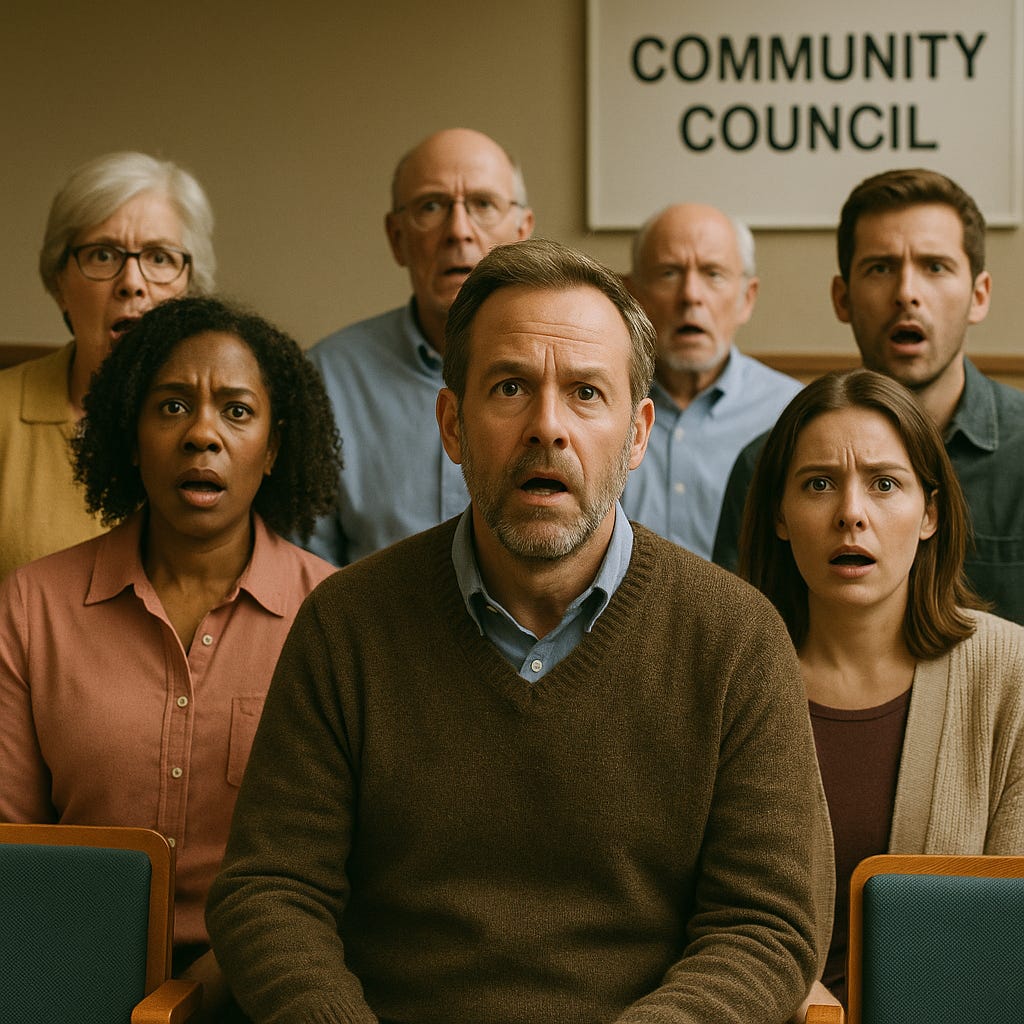Before I was navigating zoning bylaws and structuring equity waterfalls, I was navigating a school system that didn’t know what to do with me. Detention was my second homeroom. But every punishment made me better at one thing: figuring out how to get through doors that were supposed to be locked. That same instinct is exactly what real estate development requires—especially in Toronto, where "no" is just the beginning of the negotiation.
We didn’t have hallway cameras when I was a kid.
If you wanted to get away with something, you had to be creative. Think like an engineer, act like a magician. Duck left, double back, and slip out a side door before anyone noticed.
It wasn’t about being a rebel—it was about not accepting a bad system. You could either sit in detention and waste an afternoon… or figure out how to leave without getting caught and still make it home in time for G.I. Joe.
Because knowing is half the battle—and the other half is figuring out how to climb out a ground floor window without tripping the fire alarm.
That instinct—that refusal to accept “no” at face value—turned out to be my greatest professional asset.
Because in real estate development, everything starts with “no.”
You can’t build that.
You can’t change that zoning.
You can’t get financing for that type of site.
You can’t sell that project in this market.
You can’t pre-con at that price per square foot.
You can’t. You can’t. You can’t.
But then you do.
And that’s when people start calling you lucky or gifted or connected.
But what they’re really seeing is Mr. Workaround at work.
Let’s Talk About Thelma
Take Thelma Avenue. Forest Hill. If you know Toronto, you know this isn’t a high-rise neighborhood—it’s leafy, low-key, and full of people who treat their street like a private club.
So naturally, we saw the opportunity to build a boutique mid-rise condo right in the heart of it.
We’d assembled the lots. We had the right zoning designation. And we came in with world-class architecture and a vision that added value without overpowering the street.
Still, the first thing we heard from everyone—the city, the consultants, the neighbors, even a few so-called insiders—was the same:
“You’ll never get that height.”
“You don’t have enough parking.”
“This isn’t the kind of street for a condo.”
“You’re going to get crushed at community council.”
Here’s the thing about city planning in Toronto—it’s a maze with no map.
Planners don’t want to say yes unless the wind is blowing in the right direction, the community is on your side, and your shadow studies don't make anyone's begonias wilt.
So we got strategic.
Instead of fighting, we leaned in.
We massaged the design to lower impact while keeping high-value sellable space.
We engaged the community early—not to “sell” them, but to listen (and then quietly design around their biggest fears).
We made the building beautiful. Elegant. Not modernist shock-value stuff—just good, contextual design that looked like it had always belonged.
And we worked our political relationships with subtlety and timing. No hard sells. Just letting the narrative build.
By the time the project hit council, it didn’t just squeak through—it passed unanimously and in record time.
No deferrals. No drama. No angry deputations dragging it out for hours.
People were stunned.
Even some of the consultants we hired had their “well, it was worth a shot” faces on.
But that’s the thing about the workaround—it’s not about breaking the rules—it’s about knowing them better than the people who wrote them.
Takeaway: Be the Guy Who Finds a Way
You don’t have to be the smartest guy in the room. You don’t need the biggest budget.
You just have to be the guy who finds a way.
That’s what real estate is.
That’s what business is.
And honestly, that’s what life is.
If the front door’s locked, check the side gate.
If the consultant says it’s impossible, ask a different consultant—or build a new team.
If the tools don’t exist, improvise.
Because at the end of the day, everything great was once “impossible.”
Until someone like us came along and made it happen anyway.








Excellent post!! Lotta insight! Helps me to look at how I did things in the past and how to do things in the future.